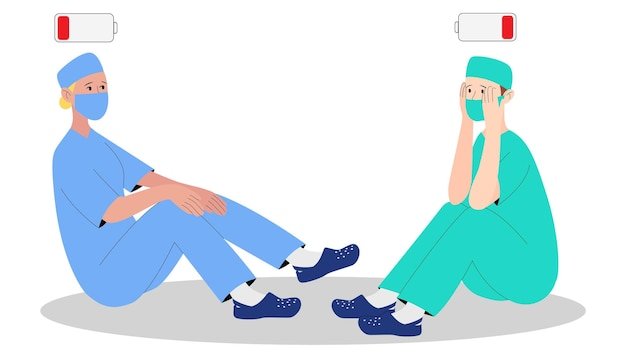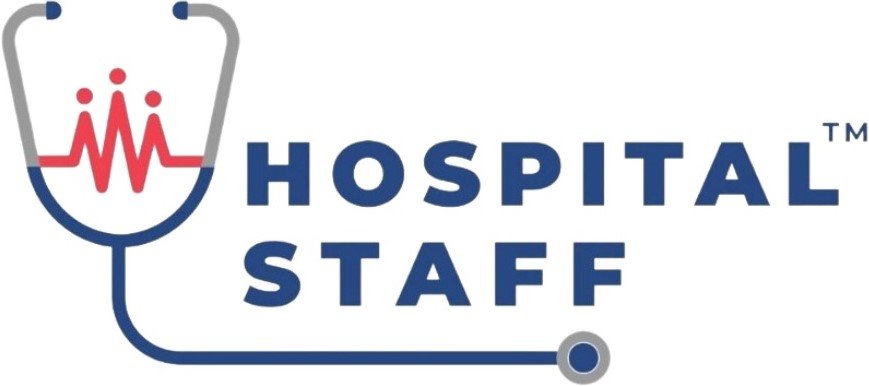Working in the healthcare sector is not an easy task; employees face many obstacles and crises, which frequently result in burnout. This is harmful to one’s physical, mental, and emotional well-being. Burnout is essentially a form of occupational stress that arises from repeated exposure to stress at work, and it can affect people in any line of employment. The fact that nurses are typically the ones who assist patients through this stage makes the conversation between nursing and mental health all the more crucial.
It’s critical to break free from mental burnout because it can hinder your work, lower job satisfaction, lower productivity, and worse patient care. Here are some suggestions from doctors and other medical professionals for reducing stress and realizing the value of mental health.
But first, let’s explore the causes of medical burnout and its symptoms to identify it early and develop coping mechanisms. Finally, let’s answer, how does burnout in the healthcare industry affect your personal and professional life? And the importance of mental health for nurses.
Causes and Early Signs
The common causes of healthcare burnout are:
- Working overtime or heavy workloads
- High attention to perfectionism and high expectations
- Lack of control and autonomy
- Increase in stress levels
- Inadequate support from management
- Getting criticism for work
- Not getting enough sleep
On the other hand, if the symptoms are identified early and treated, things may improve. The following are some typical signs of burnout among healthcare staff:
- Feeling powerless, unable to influence decisions
- Headaches, insomnia, and other stress-related health issues
- Developing negative attitude
- Reduce empathy towards patients and colleagues
- Emotionally detached from the patient
- Reduce attention span and bed memory
- Not being able to balance work and personal life
Impact of Burnout on the Team

When someone has mental health problems, it affects not just them but also everyone around them, including their colleagues. In the same way that burnout impacts the entire team and hospital, it also affects nurses, pharmacists, administrators, and other staff members.
Burnout among nurses: This can also result in a higher decrease in attention rate and an increase in unattainability. It also lowers patient satisfaction and increases medical errors.
Burnout among pharmacists: This could result in inaccurate reports, which could harm patients’ health and the hospital’s overall reputation.
Burnout among hospital administrators: This may have financial repercussions for the hospital, such as inaccurate financial reports.
Burnout among Physicians: This may result in a lack of empathy or a bad attitude toward the patient, which may further impact the care and satisfaction of the patient.
Burnout among Staff: The work and reputation of the hospital might also be impacted by other employees, such as ward boys or assistant managers.
Tips to Save From Burnout

Though the symptoms and burnout can be reversed, it won’t happen overnight; one must put in effort to see the changes. It may not happen right away, but with enough self-belief and hard work, it will eventually come to pass. A community of health nursing talks about the importance of mental health for nurses. Your lifestyle and work environment will need to change as a result.
Separate work and personal life: To achieve balance, clearly define the boundaries between your personal and professional lives. For example, you can silence your phone while spending time with your family. To let people know that you’re unavailable, you can use voicemail or autoresponder emails.
Keep physically active: Exercise regularly If you are unable to find time, consider doing 10 to 5 minutes of morning breathing exercises during your break. Physical activity enhances mood and reduces stress. The little things have a major impact on your general health.
Healthy Environment: Assemble a strong support system around oneself. Spend time with coworkers, relatives, and friends who understand you and the stress of the job. Communicate clearly with them and share your knowledge. This lessens burnout and gives you a sense of worth and understanding.
Priorities Yourself: Put yourself first, take care of your safety, and pay attention to your diet. Make sure you’re maintaining your energy level, emotional stability, and attention. which is attainable by following a regular sleep routine and diet regimen. And, when necessary, take a rest.
Practice Mindfulness: To help you maintain your composure and control your attire, try practicing yoga meditation, and deep breathing techniques. During the little break from your work, you can also download several smartphone apps to practice mindfulness wherever you are.
Develop Professionally: This doesn’t mean you have to put in endless hours and strive to be the best at what you do; rather, it means you should strive to improve on yesterday’s work, work on your abilities, receive regular feedback, and help others see their strengths. You should also take pride in your accomplishments.
Conclusion
Employers across all industries frequently experience burnout because they are too disconnected from themselves. Not only that, but one of the main causes of burnout is that people frequently don’t draw boundaries between their personal and professional lives because they are too focused on improving their careers to make more money and live better lives. Looking after your profession as nursing and mental health are necessary.
Healthcare personnel can flourish in their roles and make valuable contributions to the healthcare community by adopting measures to minimize burnout. By following the tips listed in the article and following a community of health nursing to learn more about mental health for nurses. Professionals can work on their overall emotional well-being and Get the most out of their job. To get updates on hospital job vacancies in Mumbai and other areas Sign up at hospital staff.com

